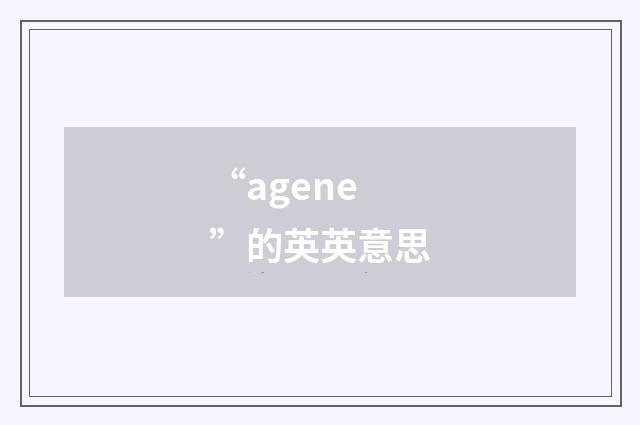| 单词 | agene |
| 释义 | agene|ˈeɪdʒiːn|
[Trade-name in U.S.A., f. age v. or n. + -ene.]
Nitrogen trichloride used in bread-making for improving, stabilizing, and artificially ageing the flour. Hence ageniˈzation, the addition of agene to flour; ˈagenized ppl. a.
1932Cereal Chem. IX. 360 When nitrogen-trichloride, commercially known as ‘Agene’, is applied to flour..its aging effect is..to be noticed. 1937Hackh & Grant Chem. Dict. (1938) 26/1 Agene process, the bleaching of flour with nitrogen trichloride. 1947Lancet 23 Aug. 284/1 Acceptability of bread as an article of food is largely increased by the use of an ‘improver’... The one in most extensive use in this country, in America, and in Western Europe is nitrogen trichloride: known commercially as ‘agene’. Ibid., Experiments which show that ‘canine hysteria’ can be produced by feeding dogs on agenised flour. 1949Lancet 22 Jan. 143/2 In 1946, Sir Edward Mellanby showed conclusively that the agenisation of flour rendered it highly toxic to dogs. 1954Times 22 Dec. 3/5 (heading) Use of Agene to be Discontinued. |

英语词典包含277258条英英释义在线翻译词条,基本涵盖了全部常用单词的英英翻译及用法,是英语学习的有利工具。
相关内容11:
相关热词搜索:agene英英词典英英释义英语词汇意思用法释义英语
